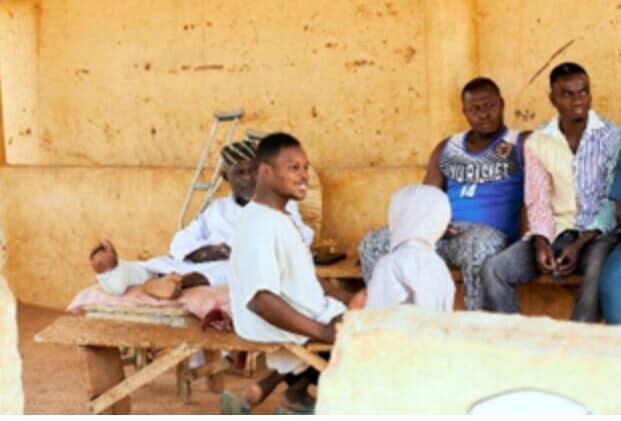Quelques semaines après que le Togo ait enregistré son premier cas de COVID 19 en mars 2020, Azizi Sedou a remarqué une détérioration des relations entre les jeunes et les autorités dans et autour de la ville de Cinkassé, dans la région des Savanes au Togo.
« Il y avait des tensions parce que les civils ne comprenaient pas pourquoi ils devaient fermer leurs commerces ou rester chez eux.,» se souvient-il.
Mesures préventives pour freiner la propagation du virus, notamment l’interdiction des rassemblements de masse, le clôture des marchés et des entreprises, et la fermeture des frontières – avaient commencé à avoir des conséquences néfastes sur le bien-être économique et social de la population, car les tentatives de résistance ou d'application de ces ordres aboutissaient souvent à de violents affrontements entre les agences de sécurité et les autorités. jeunesse.
Les affrontements fréquents concernaient Azizi, qui était souvent appelé à intervenir en faveur de la jeunesse. à résoudre ces conflits et j’ai pu constater par moi-même à quel point la situation affectait négativement la cohésion sociale.
« Tout le monde avait peur que la situation dégénère,", a-t-il admis.
Depuis son retour à Cinkassé après avoir obtenu un diplôme en gestion des ressources humaines de l'université de Lomé, Azizi était devenu un jeune leader respecté dans sa communauté. Outre son activisme pour apaiser les tensions entre les jeunes et les autorités, il était également un défenseur de l'inclusion et de la non-discrimination à l'égard des personnes handicapées. En tant qu'enfant, Aziz a survécu à la polio, mais l'a laissé incapable d'utiliser ses jambes. Cependant, cela ne l'a pas arrêté de poursuivre ses rêves de fournir à d'autres personnes handicapées les mêmes opportunités il a été donné.
« J’ai remarqué que les personnes handicapées étaient discriminées, et ainsi comme l'un des rares diplômés universitaires handicapés, Je voulais changer ce récit,» note Aziz.

L’activisme d’Azizi lui a valu une place parmi les 120 des représentants de la jeunesse recevront une formation sur la prévention de l'extrémisme violent, consolidation de la paix, cohésion sociale, et alerte précoce, un Initiative USAID/OTI facilité par Institut de Tombouctou et organisé par du Togo Conseil National de la Jeunesse.
Après la première formation, Azizi a de nouveau été sélectionné, aux côtés 19 d'autres jeunes leaders prometteurs, participer à une séance avancée de plaidoyer et de communication sensible aux conflits. « C’est après la formation que je suis devenu porte-parole de la jeunesse, quelles que soient leurs capacités, J'ai compris ce qu'on entendait par extrémisme violent, comment les conflits en cours ont rendu notre communauté vulnérable, et comment prévenir l'extrémisme violent,» explique cher, qui va désormais de maison en maison pour sensibiliser ses pairs et son communauté sur le besoin de cohésion sociale, alerte précoce et prévenir l’extrémisme violent.
Azizi et ses pairs de la formation ont engagé plus de 1,000 hommes, femmes, et les jeunes de la région des Savanes au Togo et continuer à toucher davantage de résidents.. À la suite de ces engagements, il y a eu une amélioration des relations entre les autorités et jeunesse, observé par une plus grande collaboration entre les deux fêtes pour le partage d'informations et fournir mises à jour de sécurité.
"M.Mon rêve est de Cinkassé où tout le monde est en paix, où il y a cette cohésion sociale, il n'y a pas de préjugés basés sur les ethnies, statut social ou handicap,» Azizi conclut.